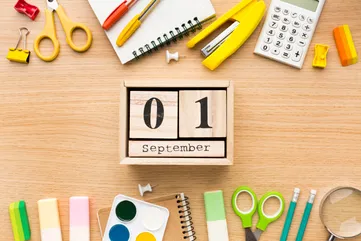Goal Setting
Goal setting transforms vague wishes into specific targets with clear action steps, deadlines, and progress markers that guide effort and maintain motivation.
Why poor goal setting leads to failure
Most teens set vague, unrealistic goals without action plans, guaranteeing disappointment and reinforcing failure patterns.
Common goal-setting mistakes:
• Too vague: "do better in school"
• Too big: "get straight A's" from D's
• No plan: goal without action steps
• No timeline: "someday" goals
• External pressure: parent goals, not teen goals
• All-or-nothing: perfection or failure
Without proper goal setting, teens experience repeated failure, developing learned helplessness about their ability to change.
You're not alone
If your teen sets ambitious New Year's resolutions that die by February, or says they want to improve but nothing changes, they need goal-setting skills. Schools rarely teach this explicitly. Most adults struggle with goal setting too. Learning this skill early provides lifelong benefits for academic, career, and personal success.
What it looks like day to day
Student
Your teen says they want better grades but has no specific plan beyond "study more," leading to no actual change.
Parent
You watch the cycle of big promises, initial enthusiasm, gradual decline, then shame and giving up, wondering how to break the pattern.
Tiny steps to try
Build effective goal-setting skills progressively.
- 1
Start microscopic
First goal should be laughably achievable. Success builds confidence for bigger goals.
- 2
Make it measurable
Change "exercise more" to "10 pushups every morning." Specific beats vague.
- 3
Write it down
Written goals are achievements waiting to happen. Verbal goals are wishes.
- 4
Weekly check-ins
Review progress weekly. Adjust plan based on what's working or not.
- 5
Process over outcome
Focus on "study 30 minutes daily" not "get an A." Control what's controllable.
Why goal setting matters
Effective goal setting teaches teens they can influence their future through planned action rather than hoping for change.
Goal achievement builds self-efficacy and internal locus of control. Teens learn to break large objectives into manageable steps, a crucial life skill. The process of setting and achieving goals develops executive functioning, planning abilities, and resilience through setbacks.
Ready to help your teen thrive?
Get personalized 1-on-1 coaching to build better habits and boost grades. Join 10,000+ families who trust Coachbit.
Frequently Asked Questions
Should I set goals for my teen or let them choose?
Teen ownership is crucial for motivation. Guide the process but let them choose goals. You can suggest areas for consideration or share your hopes, but imposed goals rarely succeed. If you have non-negotiables, frame them as expectations, not goals.
What if my teen's goals seem too easy or too hard?
Start with easy wins to build confidence and habits. Better to achieve small goals than abandon big ones. For unrealistic goals, help break them into stepping stones. "NBA player" becomes "make varsity team" becomes "practice free throws daily."
Related Terms
Accountability Partner
An accountability partner is someone who provides regular check-ins, encouragement, and gentle pressure to help maintain commitment to goals and habits.
Growth Mindset
Growth mindset is the belief that abilities and intelligence can be developed through effort, learning, and persistence rather than being fixed traits.
Progress Tracking
Progress tracking is systematically monitoring advancement toward goals through measurable indicators, maintaining motivation and enabling strategy adjustments.
Self-Efficacy
Self-efficacy is the belief in your ability to succeed at specific tasks or challenges, directly influencing motivation and persistence.
SMART Goals
SMART goals are Specific, Measurable, Achievable, Relevant, and Time-bound objectives that transform vague wishes into clear action plans.
Related Articles

Finding Order in the Chaos – Setting up Calendars for Kids
Creating a calendar and daily schedule for kids can be beneficial to manage school, homework, extracurriculars and hobbies. Color-coding and time-blocking are helpful tools for kids with ADHD.
Read article
3 Ways an Executive Functioning Coach Can Help Your Child
Discover why executive functioning skills are crucial for your child's success. Learn how an executive functioning coach can make a difference
Read article
